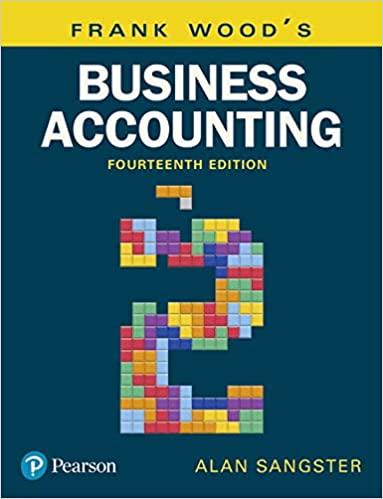Question
2018 Individual Tax Rates Single Individuals If Your Taxable Income Is You Pay This Amount on the Base of the Bracket Plus This Percentage on
| 2018 Individual Tax Rates | |||||
| Single Individuals | |||||
| If Your Taxable Income Is | You Pay This Amount on the Base of the Bracket | Plus This Percentage on the Excess over the Base (Marginal Rate) | Average Tax Rate at Top of Bracket | ||
| Up to $9,525 | $0 | 10.0 | % | 10.0 | % |
| $9,525 - $38,700 | 952.50 | 12.0 | 11.5 | ||
| $38,700 - $82,500 | 4,453.50 | 22.0 | 17.1 | ||
| $82,500 - $157,500 | 14,089.50 | 24.0 | 20.4 | ||
| $157,500 - $200,000 | 32,089.50 | 32.0 | 22.8 | ||
| $200,000 - $500,000 | 45,689.50 | 35.0 | 30.1 | ||
| Over $500,000 | 150,689.50 | 37.0 | 37.0 | ||
Standard deduction for individual: $12,000
| Married Couples Filing Joint Returns | |||||
| If Your Taxable Income Is | You Pay This Amount on the Base of the Bracket | Plus This Percentage on the Excess over the Base (Marginal Rate) | Average Tax Rate at Top of Bracket | ||
| Up to $19,050 | $0 | 10.0 | % | 10.0 | % |
| $19,050 - $77,400 | 1,905.00 | 12.0 | 11.5 | ||
| $77,400 - $165,000 | 8,907.00 | 22.0 | 17.1 | ||
| $165,000 - $315,000 | 28,179.00 | 24.0 | 20.4 | ||
| $315,000 - $400,000 | 64,179.00 | 32.0 | 22.8 | ||
| $400,000 - $600,000 | 91,379.00 | 35.0 | 26.9 | ||
| Over $600,000 | 161,379.00 | 37.0 | 37.0 | ||
Standard deduction for married couples filing jointly: $24,000
Quantitative Problem: Jenna is a single taxpayer. During 2018, she earned wages of $113,000. She doesn't itemize deductions, so she will take the standard deduction to calculate 2018 taxable income. In addition, during the year she sold common stock that she had owned for five years for a net profit of $7,100. How much does Jenna owe to the IRS for taxes? Do not round intermediate calculations. Round your answer to the nearest cent.
$
Corporate
Corporations earn most of their income from operations; however, they may also receive interest and dividend income. -Select-InterestDividendCorrect 1 of Item 2 income is taxed as ordinary income; however, -Select-interestdividendCorrect 2 of Item 2 income is taxed more favorably. 50% of -Select-interestdividendsCorrect 3 of Item 2 received is excluded from taxable income, while the remaining 50% is taxed at the ordinary tax rate. For businesses, -Select-interestdividendCorrect 4 of Item 2 payments are regarded as an expense so they are tax deductible; however, -Select-interestdividendCorrect 5 of Item 2 payments are not tax deductible. Consequently, our tax system encourages -Select-equitydebtCorrect 6 of Item 2 financing over -Select-equitydebtCorrect 7 of Item 2 financing. Depreciation expense is tax deductible, so the larger the depreciation, the -Select-lowerhigherCorrect 8 of Item 2 the taxable income, the -Select-lowerhigherCorrect 9 of Item 2 the taxes, and the -Select-lowerhigherCorrect 10 of Item 2 the firm's operating cash flow.
Quantitative Problem: Andrews Corporation has income from operations of $249,000. In addition, it received interest income of $24,900 and received dividend income of $28,200 from another corporation. Finally, it paid $9,400 of interest income to its bondholders and paid $44,000 of dividends to its common stockholders. The firm's federal tax rate is 21%. What is the firm's federal income tax? Do not round intermediate calculations. Round your answer to the nearest dollar.
$
Step by Step Solution
There are 3 Steps involved in it
Step: 1

Get Instant Access to Expert-Tailored Solutions
See step-by-step solutions with expert insights and AI powered tools for academic success
Step: 2

Step: 3

Ace Your Homework with AI
Get the answers you need in no time with our AI-driven, step-by-step assistance
Get Started


